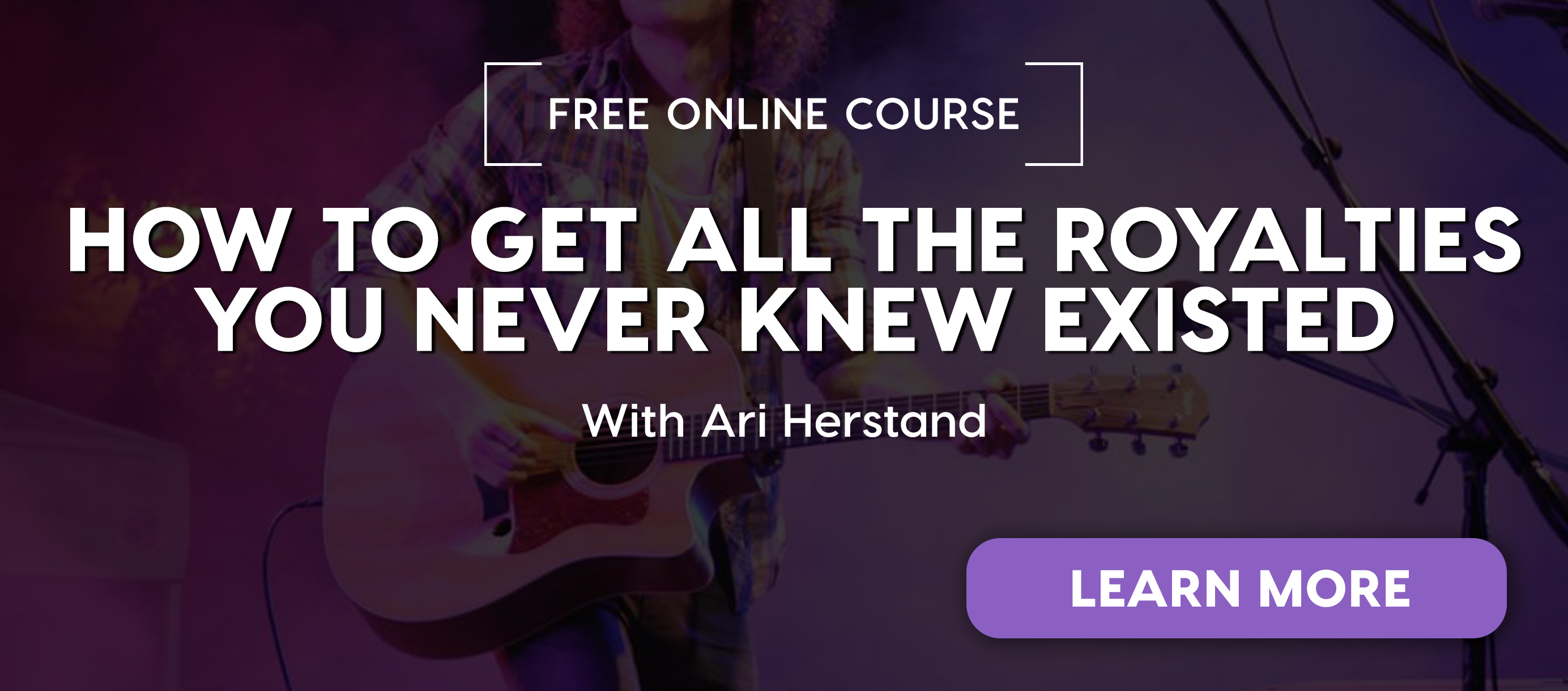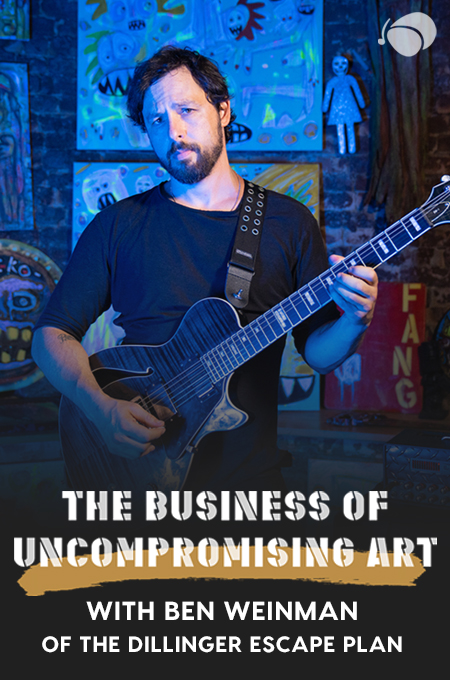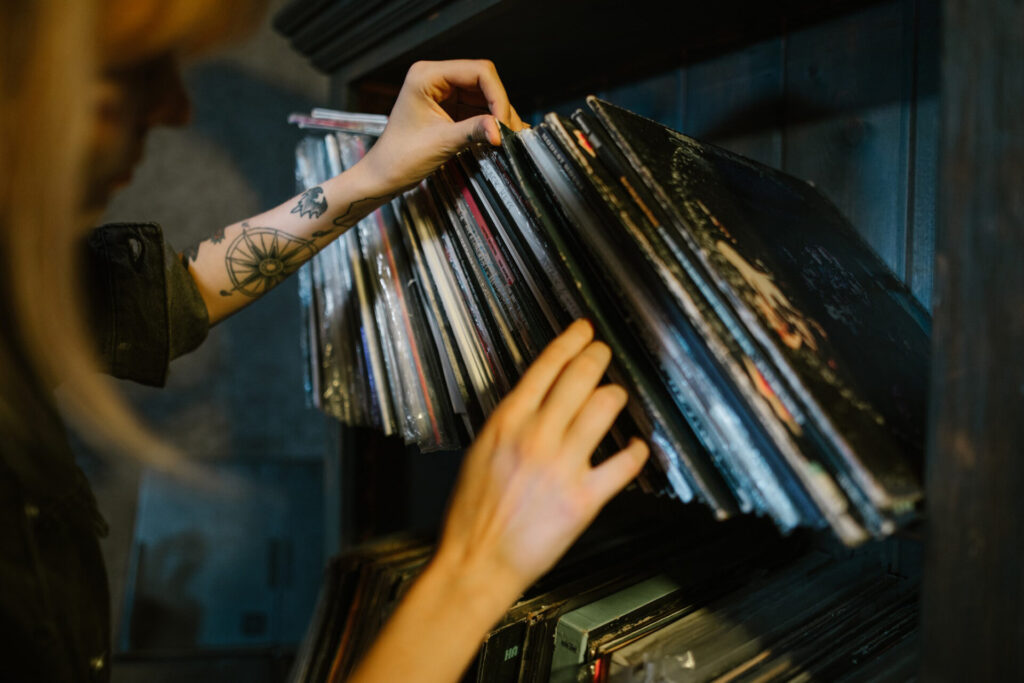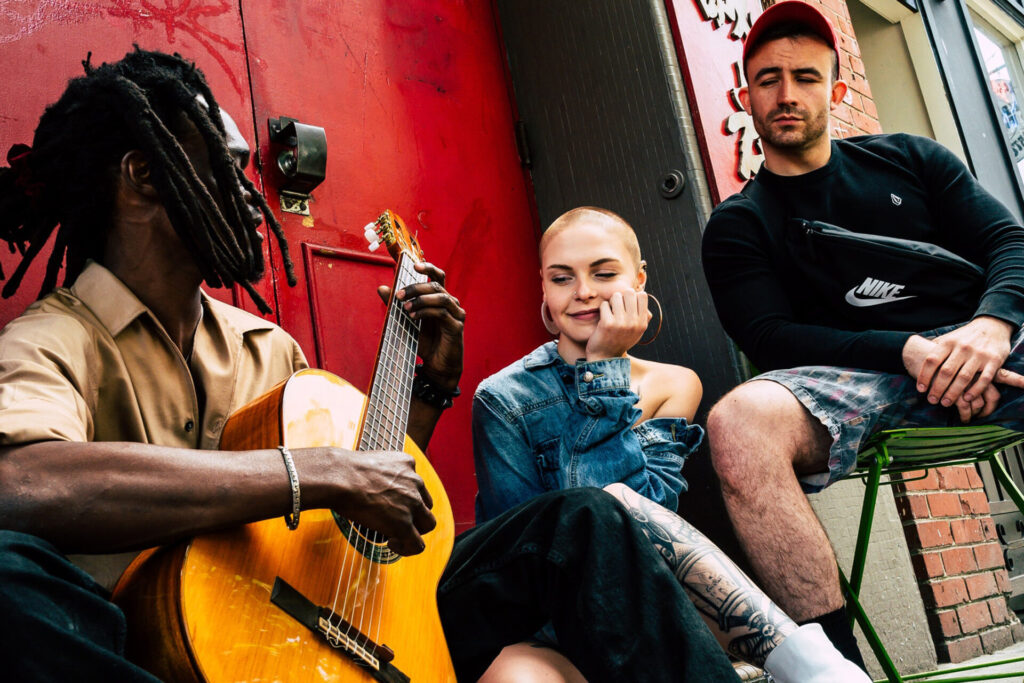
+ Welcome to Soundfly! We help curious musicians meet their goals with creative online courses. Whatever you want to learn, whenever you need to learn it. Subscribe now to start learning on the ’Fly.
By Chris Dampier
Have you just released the greatest track ever? Congratulations! Do you have any idea how you will get paid what you’re owed and not get ripped off? Through my extensive work in publishing administration, I’ve seen that unfortunately too few artists really know their rights when it comes to collecting royalties on their music.
This state of affairs doesn’t surprise me since the world of publishing, rights, and royalties is incredibly complex. That’s why I thought it could be helpful to give independent artists a simple(r) guide to getting all the cash that’s their due.
Know Your Rights
First, let’s establish what rights you have as an artist.
When you create a song you are in fact the owner of two distinct copyrights: one for the sound recording (sometimes referred to as a “master”), and one for the underlying composition (the melody, chords, and what makes the recording unique). When you record a composition you have written, two copyrights are created, each of which requires different forms of administration to ensure the cash they generate flows to you, the rights owner.
Get Treated Like Royalty
When you use a distributor to provide your track to an online platform such as Spotify or Apple Music there are three royalties to be collected for the two copyrights (sound recording and composition) you own as the rights holder: artist/master royalties, performance royalties, and mechanical royalties.
To ensure you receive these three different revenue streams you need three different types of professionals working to collect them:
- A distributor
- A performing rights organization (or PRO)
- A publishing administrator
A distributor such as TuneCore can submit your track to more than 150 streaming platforms worldwide. They then collect the royalties generated from the stream or use of your sound recording. These royalties are artist royalties or master royalties. TuneCore’s custom graphic below helps to demystify your available royalties.
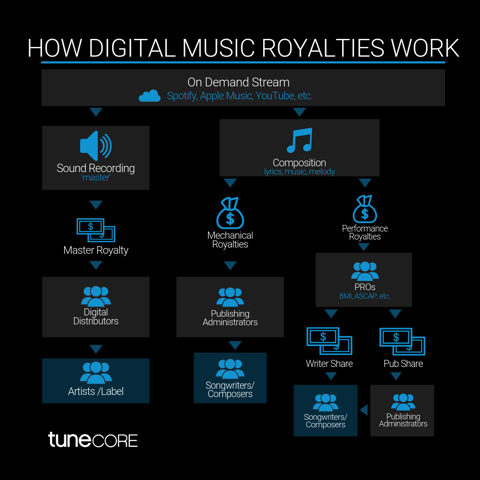
You’re all set now that you have ensured that a distribution partner is getting you all the royalties you’re due for streams or downloads, right? Wrong! You forgot about performance royalties and mechanical royalties.
Become a PRO
In addition to the artist royalty you receive when your song is streamed, you are also due a performance royalty. The public performance or broadcast of a composition generates a performance royalty, and in order to collect these you need to be registered with a performing rights organization (PRO). There are many around the world for each territory but in the U.S. the main ones are ASCAP and BMI.
The PRO will collect royalties from the performance of your compositions on radio, in bars and restaurants, as well as income from film/television placements and live venues. In fact, if you’ve played a gig at a licensed venue, you can submit your setlist to ASCAP or BMI, who will then pay you royalties for your own songs that you’ve performed live.
It is important to know that a performance royalty is split into two: the writer’s share and the publisher’s share. The writer’s share is always paid directly to the songwriter, bypassing a publisher. This ensures the songwriter receives their share of the performance income should they enter into an agreement with a music publisher.
It is quite common for people early in their career to think a PRO is collecting all the royalties they are due. However, they are simply a performing rights organization and they won’t collect the third revenue stream, the mechanical royalty, which is generated when a song is reproduced, retransmitted, or rebroadcast.
Get Thee to the Pub
In the digital age, your music is global as soon as you upload it to a platform like Spotify. Collecting all the revenue requires a global collection network and income tracking team as there are multiple societies around the world collecting performance and mechanical royalties. A music publishing administrator such as TuneCore will proactively manage and optimize all the royalties due. They work in tandem with your PRO to maximize performance royalty collections worldwide.
As the copyright owner, you could register with each individual entity around the world, track these royalties, and make yourself crazy in the process. A publishing administrator’s role extends far beyond simply collecting mechanical royalties. I estimate there are 120 different groups of revenue streams for a composition, which, in theory, could be broken down into thousands of revenue streams in total from all territories. That is a lot of tracking that needs to be done.
A team like mine over at TuneCore has professionals and proprietary software systems designed to help track, monetize, and collect income from your compositions. Because when artists have leading edge technology, teams, and services helping them get paid, they are freed up to focus on doing what they do best: create music.
Find out once and for all how streaming and sales royalties work — and how to get the money you deserve — in Soundfly’s free course with Ari Herstand, How to Get All the Royalties You Never Knew Existed.
—
Chris Dampier oversees publishing and sync for TuneCore. Previously he was with BMI, where he was Director, Creative: Film, TV, and Visual Media. He has also held positions as head of licensing at CMH Records and Universal Music Group.

